David Bailey, SCA Interpretive Ranger
When people think of summer vacation, images of campsites, hiking, and going to the beach may come to mind. We also think of these trips as only lasting a few days, maybe a week or sometimes two if we are lucky.
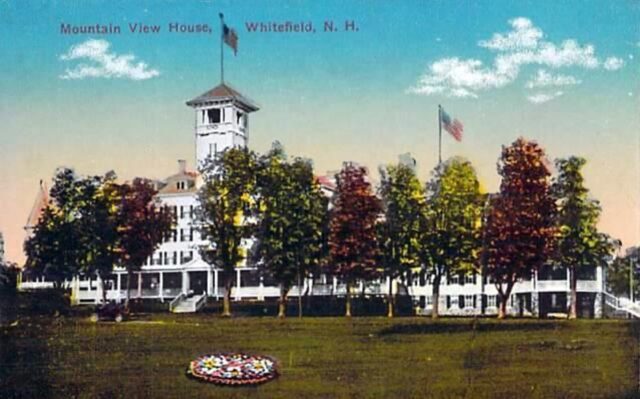
However, summer vacation looked much different during the 1850’s through the early 1900’s. During these times it was not uncommon for the wealthy to spend their entire summer staying at one of several grand hotels that could be found in the White Mountains. There were many reasons that this occurred. Some did it to escape the heat of the big cities and others did this as part of their social circles. During these times, the head of the household and supplier of most household income (typically male) would commute by train or carriage from their home in the cities to the grand hotels for a long weekend every few weeks. The other members of the family normally stayed for most of, if not the entire summer. It was also not uncommon for people to visit friends staying at other hotels in the area as a way to socialize.
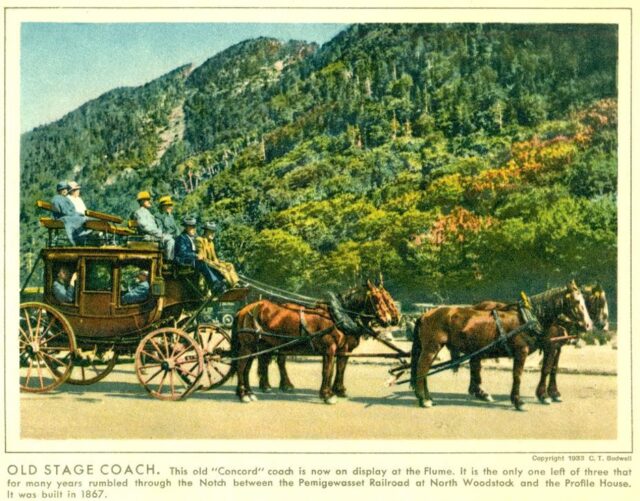
Along with a change in the duration of stay, recreational activities have also changed since those times. While today many people visiting the White Mountains may choose to go hiking as one of their main activities for their trip, many people visiting the grand hotels in the early days were less interested in those types of pastimes. Most guests would have preferred to play a round of golf, go boating, fishing, or bowling, or may have gone dancing in the evening.
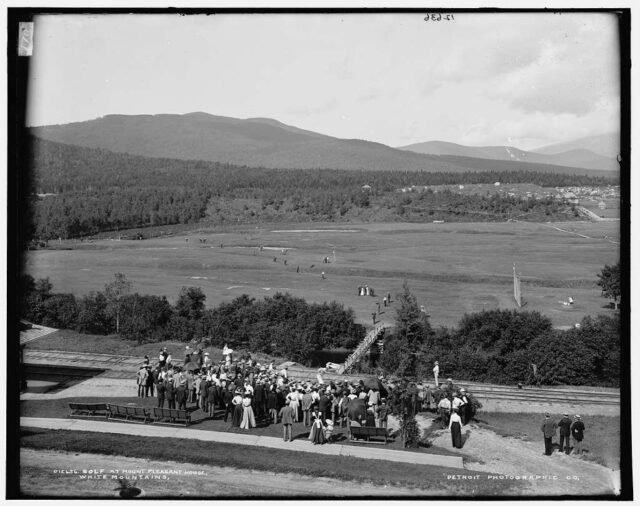
If guest did go hiking, it was typically a shorter hike. An example of this would be the Flume Gorge, located in Franconia Notch State Park. At the time, guests would have walked along the boardwalk to a large boulder lodged between the canyon walls. We can no longer see this particular stone, as it collapsed during a rainstorm in 1883.
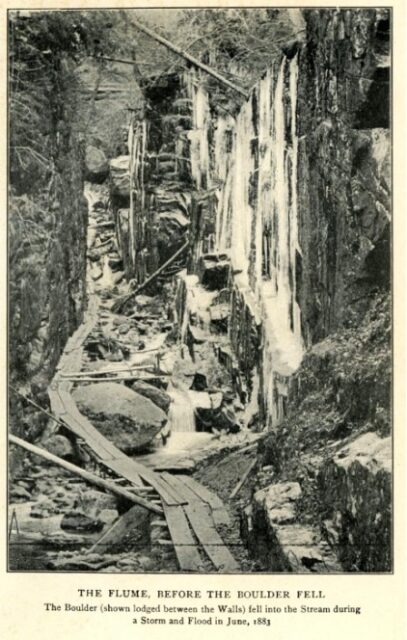
Due to their remoteness, many hotels had to be self-sufficient. Many would have their own power plant, greenhouses, dairy farm, and fish hatchery for stocking local lakes and ponds.
Despite being a popular destination at the time, only three of the original 24 grand hotels are still in operation. There are two main reasons that a hotel may have closed. The first is fire. The hotels were made of wood and did not have the advantage of having fire sprinklers installed. Fires would spread quickly. The cost of rebuilding was often too much for the hotel. The other reason was a lack of business. Many would have to close because people were no longer interested in long-term trips. The land was often sold and repurposed.
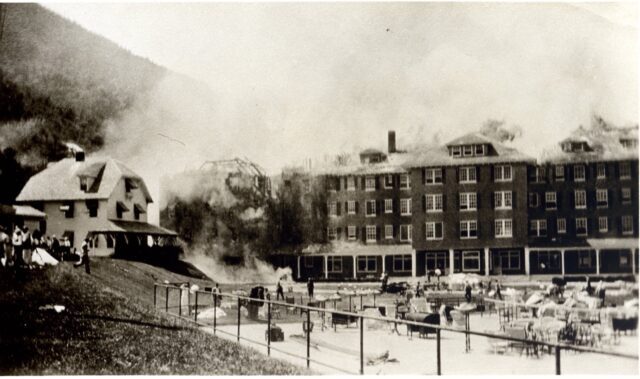
Special thank you too Melissa Boyd (Recreation Manager at Mountain View Grand) and Bill O’Connor (New Hampshire State Park) for providing information about the Grand Hotels of New Hampshire.
References
Tolles, B., Robinson, C., & Enman, R. (2019). The Grand Hotels of the White Mountains Online Exhibition – Museum of the White Mountains. Www.plymouth.edu. https://www.plymouth.edu/mwm/exhibitions/the-grand-hotels-of-the-white-mountains-online-exhibition/
The post The Grand Hotels of New Hampshire appeared first on NH State Parks.
